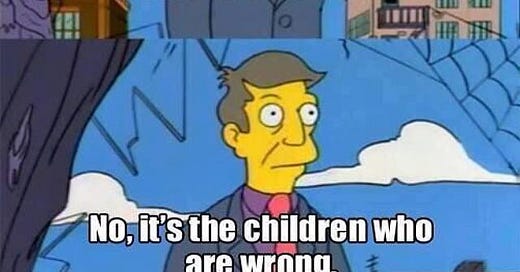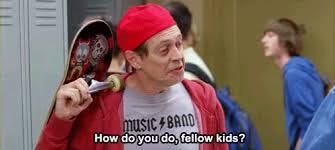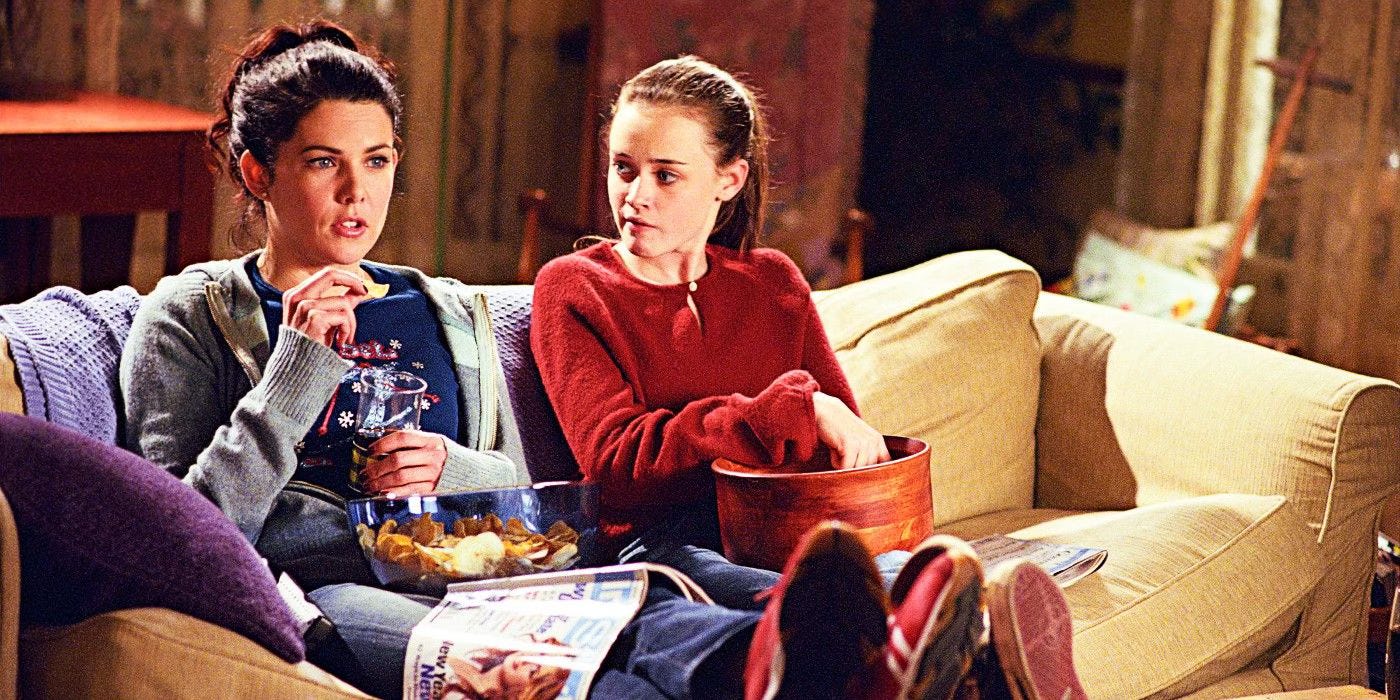A danger of writing kids and teens into your story is coming across like the cool parent who tries to use slang from their kids’ generation (un-ironically). Paul Platt points out that a lot of modern TV shows present a sort of alternate 2000s, because technology is in the background. The digital lives of today’s youth are just as present for them as the people in the room with them. But that digital life is hard to capture in movies and television.
Two questions to ask when taking on the task of writing younger characters could be, “What do we know (for sure)?” and “What did we feel as kids?”
What do we know (for sure) about kids?
Sean Arnold explores the way that every generation asks what the problem is with kids these days. He suggests that when kids see out-of-touch narratives and imagery of young people created by older generations, it makes younger generations more antagonistic toward their elders. Peeling back the presumptuous negative narratives reveals concerns and problems that kids and teens are actually facing.
Eli George, a member of Gen Z, shares research about young people’s views on their mental health and social media (along with other possible factors). Alvin Chang offers a heartbreaking look at how Middle School might be the last, best chance to convince humans not to grow up to be assholes, and how most everyone is miserable in Middle School.
What did we feel as kids?
Nathin Rabin looks at the “double dose of nostalgia” in Stand By Me. The framing device of an older version of one of the children looking back on the events of the film also creates a sense of distance. This doesn’t need to be about what kids are like today, but what kids were like then. And yet, this rare R-rated story focused on kids finds some universal truths of friendship connecting the past, the film’s present, and our own.
Amy Sherman-Palladino famously pitched Gilmore Girls in one sentence: It’s about a mother and daughter, but they’re more like best friends.” Siena Stott casts a critical eye on that dynamic, looking at how parents with unhealed trauma can pass it on to their children. Failing to see the child as a unique person instead of an extension of yourself or mini-me is a trap for parents. Writers can also fall into that trap if they lend the details of their childhood to their characters instead of the emotional truths that connect kids now and then.
Sydney Fix points to Lynne Ramsay’s Ratcatcher as an example of children surrounded by the anxieties of adulthood, but not yet able to fully understand the reasons behind them.
Writing about children in an authentic way requires a delicate balance. It’s not enough to remember being a child, but to be able to look back and pull out the delicate feelings that create an emotional bridge between an older, nostalgic audience and younger people wondering if they’re actually going to be understood.
👋 Are you new here?
Inneresting is a weekly newsletter about writing and things that are interesting to writers. Subscribe now to get more Inneresting things sent to your inbox.
Previously on Inneresting…
In case you missed it, in last issue’s most clicked link, Zvi Mowshowitz shares an extensive collection of notes about how different writers write.
What else is inneresting?
On this day when the members of Radiohead were revealed to have formed a new LLP, it’s worth taking a look back with Jeremy Gordon at the early years of the internet, and the fan sites and forums that built the band’s mystique.
Jennifer Mercieca dissects a single sentence from House Speaker Mike Johnson to explain four authoritarian rhetorical tricks.
When you go to this link, you’ll see an adjective and two different pictures of chickens. Then you click on the chicken you think best represents that adjective. Keep doing this until you feel emotionally leveled out.
And that’s what’s inneresting this week!
Inneresting is edited by Chris Csont, with contributions from readers like you and the entire Quote-Unquote team.
Are you enjoying this newsletter?
📧 Forward it to a friend and suggest they check it out.
🔗 Share a link to this post on social media.
🗣 Have ideas for future topics (or just want to say hello)? Reach out to Chris via email at inneresting@johnaugust.com, Bluesky @ccsont.bsky.social, or Mastodon @ccsont@mastodon.art.






